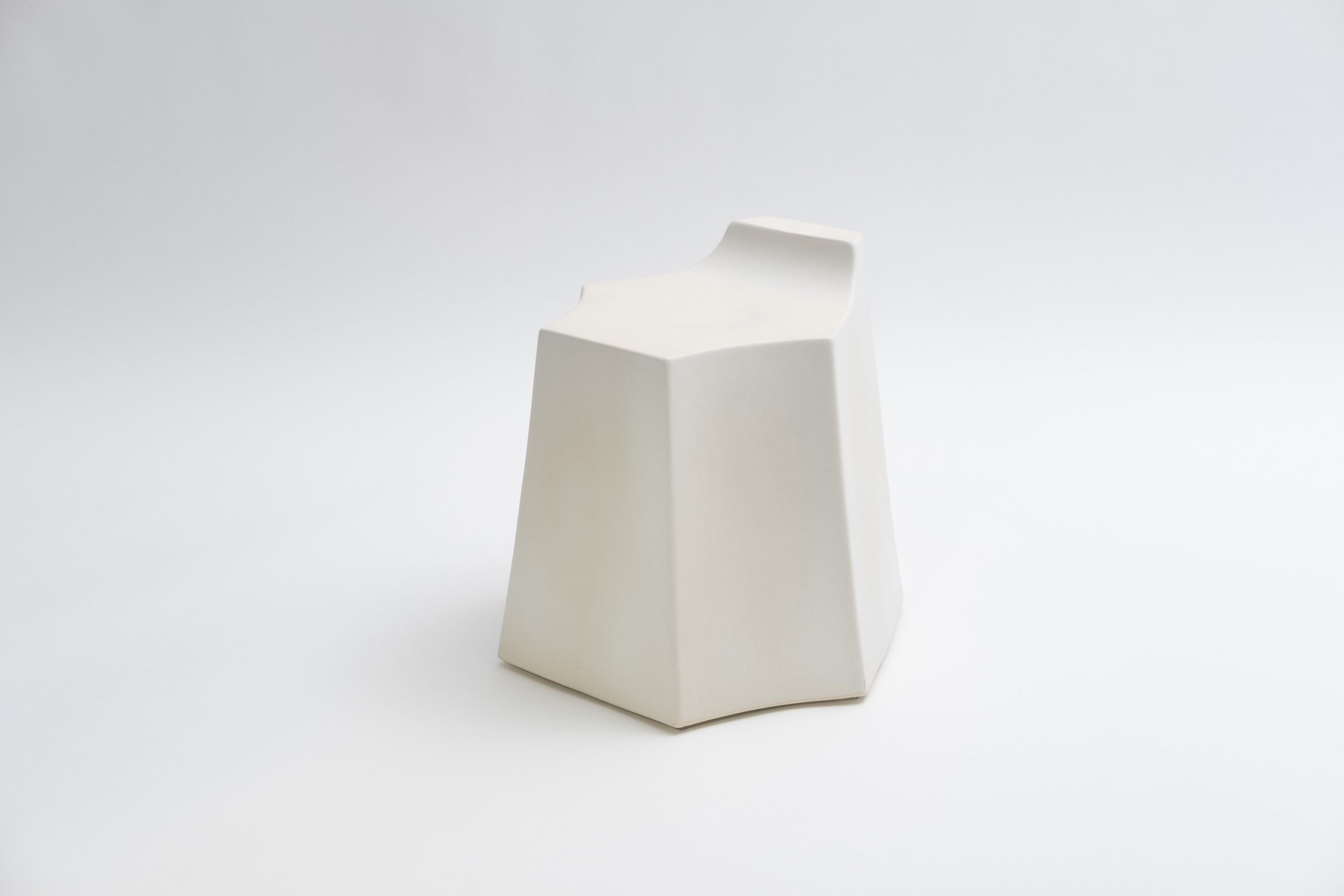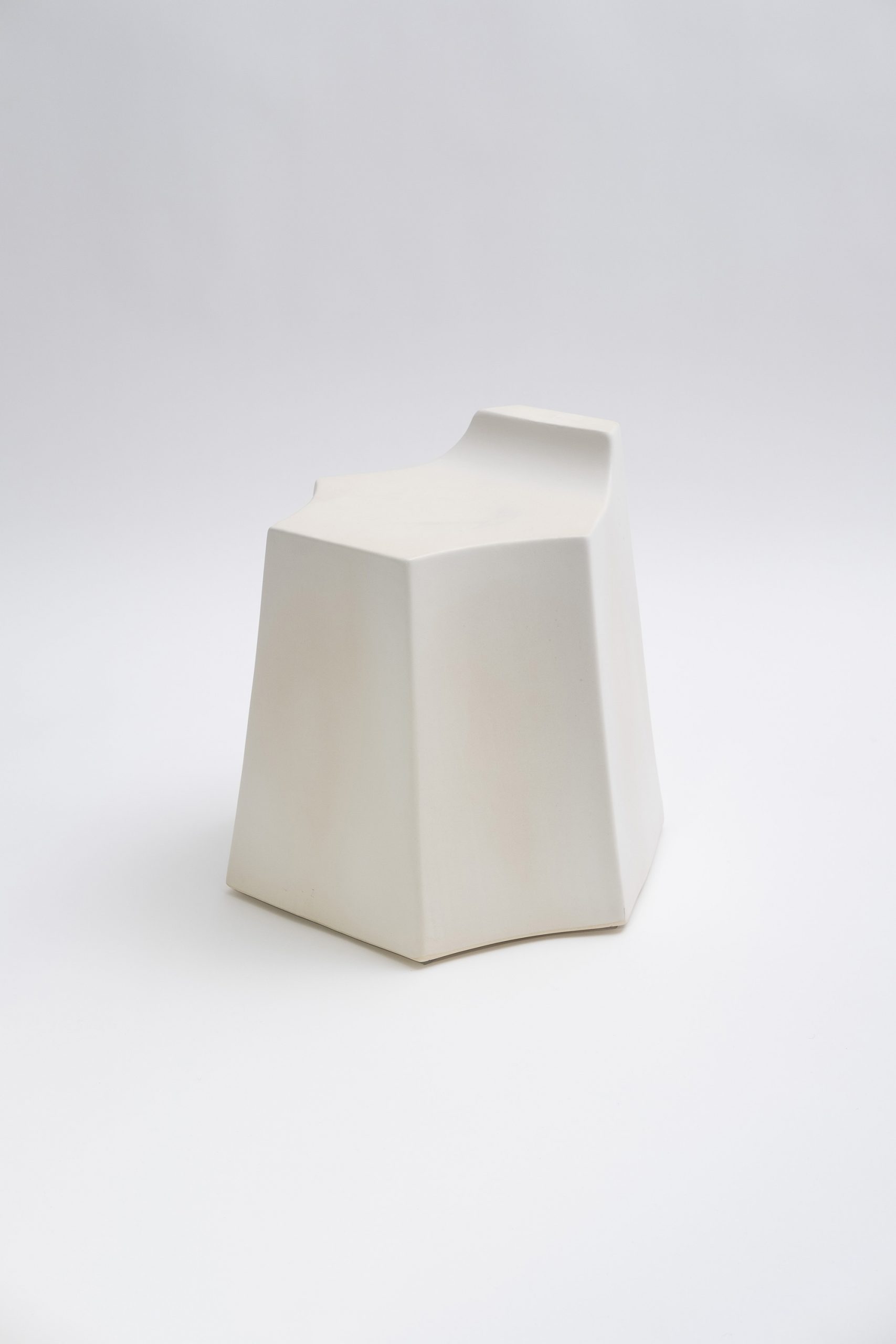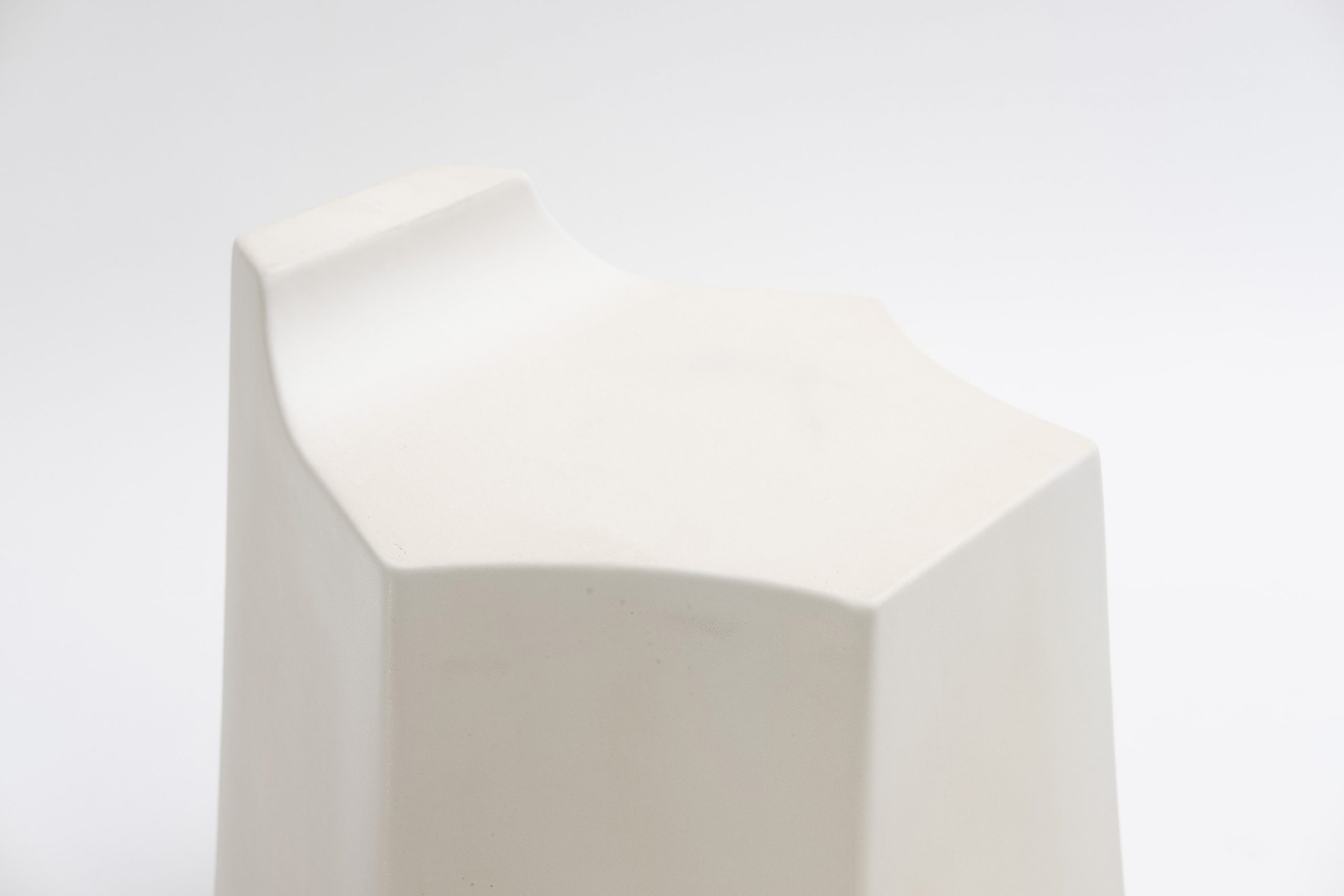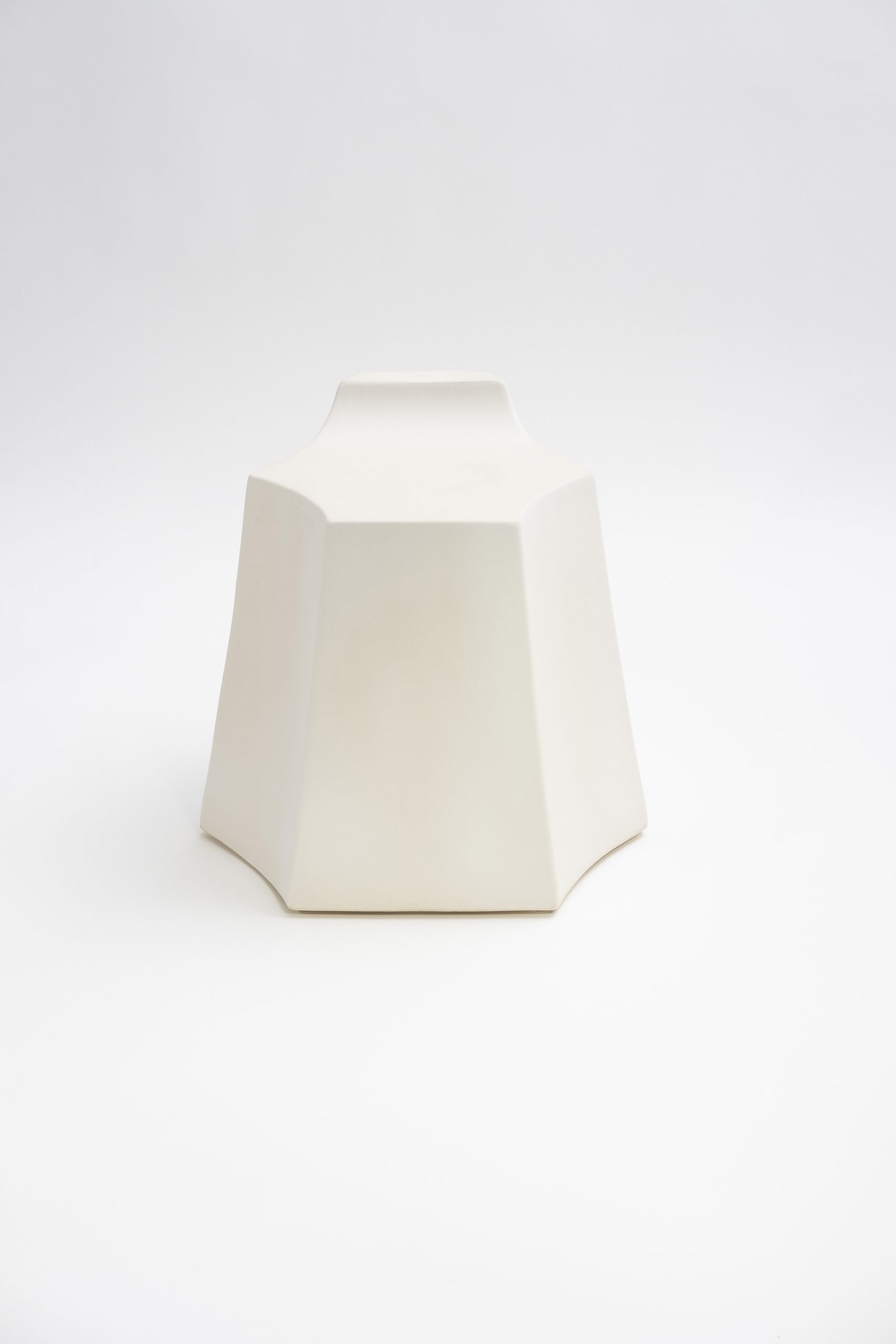Project is shortlisted 2022/23
Vitri
Vitri is a product that detaches the material ceramic from its primary use in a sanitary context. This approach allows for new possibilities of cross-contextual engagement with a familiar material.
Ceramic is a material that, due to its durability and purity, has gained a high value in the sanitary sector. These attributes are further accompanied by an aesthetic that is characterized by its homogeneity, naturalness and value.
Characteristics that not only benefit the sanitary sector, but can also open up new perspectives for the rest of the furniture world. In this context, Vitri offers an insight into an application area of ceramics that has been little explored so far.
This product embodies the claim to a piece of furniture that fulfills its assigned function simply, subtly and reliably over time.
Vitri is a seating furniture made of Vitreous China sanitary porcelain. To make the stool, a large mold made of plaster was used, into which the liquid sanitary paste was poured. After hardening, the mold was raw fired and then glaze fired. High temperatures during the firing process guarantee high hardness and wear resistance. Due to the smooth and easy-to-clean glaze surface, the object meets high hygienic requirements, whereby chemical acids or cleaning agents cannot harm the material. By using sanitary ceramics, soft and flowing edges, with large surfaces could be implemented. In addition, the high-quality material with its exceptional stability ensures that thinner wall thicknesses are made possible. This results in a saving in the material used.
The innovative character of the Vitri stool comes from a profound examination of the concept of furniture in the sanitary field. The material ceramic, which is widely used in this context due to its positive properties in relation to water, has thus already undergone a long development in the field of formal design.
This resulting formal language, characterized by its curved lines and organic appearance, subsequently opens up a new scope of design that can be completely reinterpreted by applying it to another field of application.
The detachment of the material ceramics from its usual context thus leads to the freedom of redesigning familiar furnishing objects.




